Watch Guides
Automatic vs Mechanical Watches: Selection Guide with ZY Chrono Collection
The choice between automatic and manual wind mechanical watches represents one of the most fundamental decisions in watch ownership, affecting daily interaction, maintenance requirements, and long-term satisfaction. Both types offer authentic mechanical watchmaking experiences, but each serves different lifestyle preferences and wearing patterns. ZY Chrono’s diverse collection includes excellent examples of both categories, making it an ideal case study for understanding these differences and selecting the optimal type for your needs.
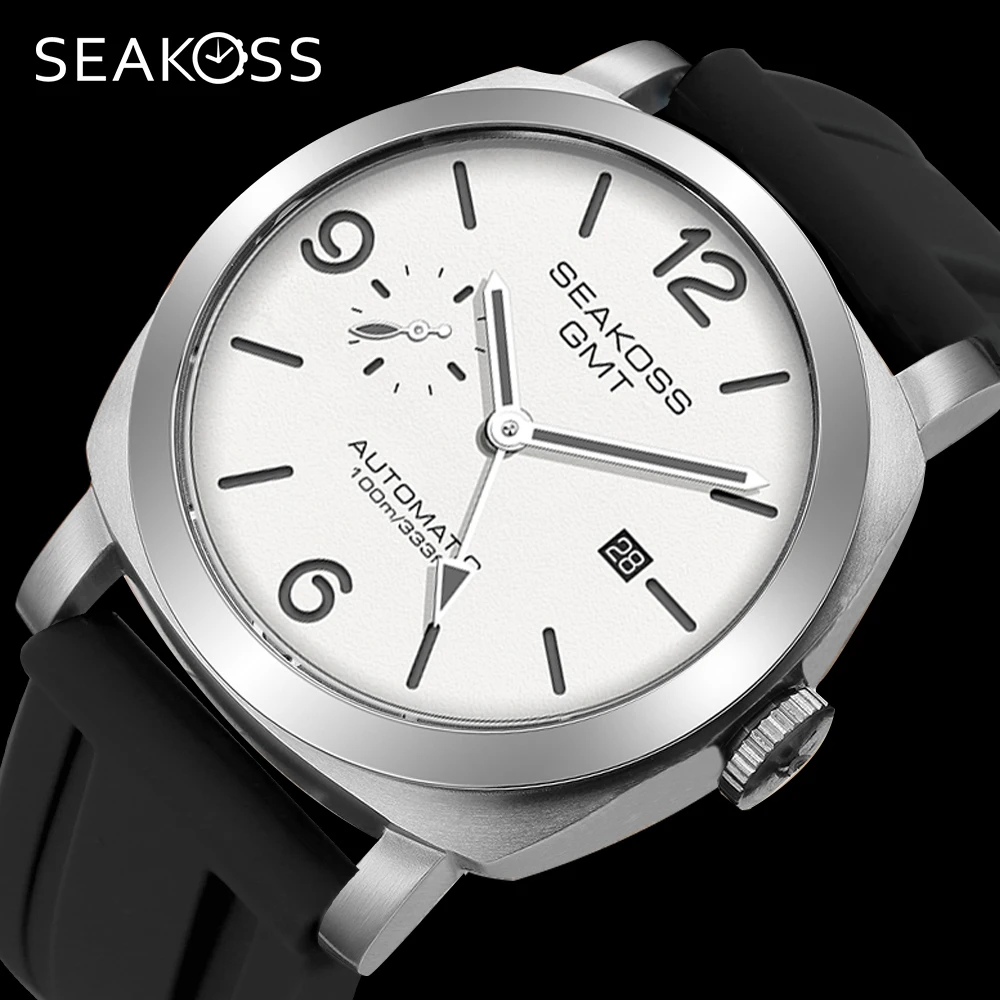
Understanding Automatic and Manual Wind Mechanisms
Before examining specific models, it’s essential to understand the fundamental differences between these two mechanical approaches:
Manual Wind (Hand-Winding) Movements
Manual wind movements require daily interaction to maintain power:
- Power source: Mainspring wound by turning the crown
- Daily ritual: Requires winding every 24-48 hours
- Construction: Simpler architecture without automatic winding components
- Case thickness: Generally thinner due to absence of rotor mechanism
- Historical authenticity: Traditional approach used for centuries
Automatic (Self-Winding) Movements
Automatic movements harness wrist motion to maintain power:
- Power source: Mainspring wound by rotor responding to wrist movement
- Convenience: No daily winding required with regular wear
- Construction: Additional components including rotor and automatic winding wheels
- Case thickness: Typically thicker to accommodate rotor mechanism
- Modern practicality: Developed for convenience in 20th century
Operating Mechanisms and User Experience
Manual Wind Operation
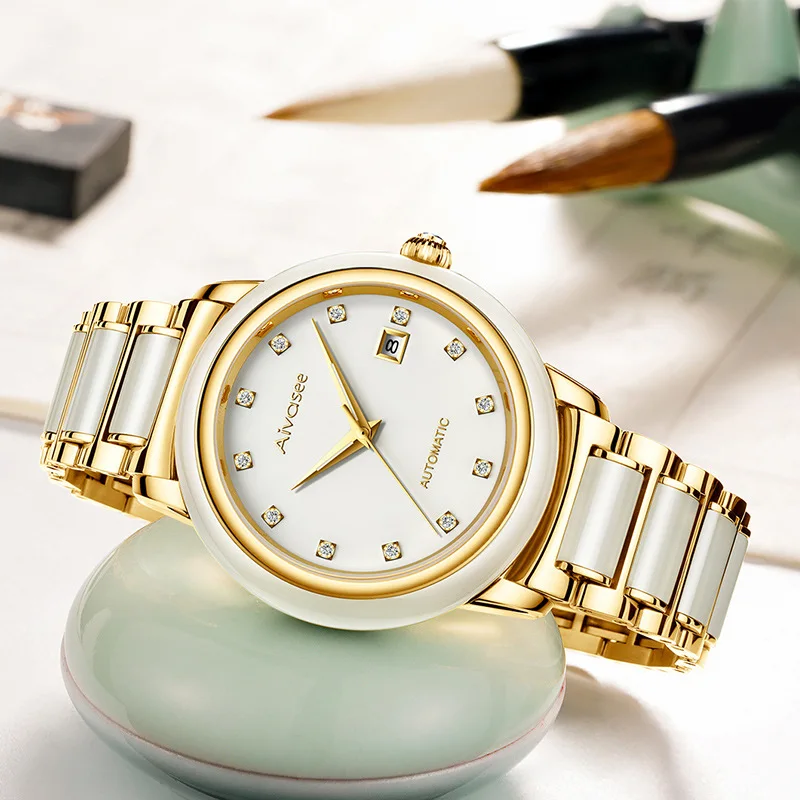
Daily Routine
- Morning winding: 30-40 crown turns for full power
- Tactile feedback: Feel mainspring tension increase
- Completion point: Stop when resistance increases
- Power awareness: Know watch’s energy state
User Experience
- Mindful interaction: Daily connection to timepiece
- Mechanical awareness: Understanding of power state
- Routine establishment: Consistent daily practice
- Historical connection: Traditional watchmaking experience
Automatic Operation
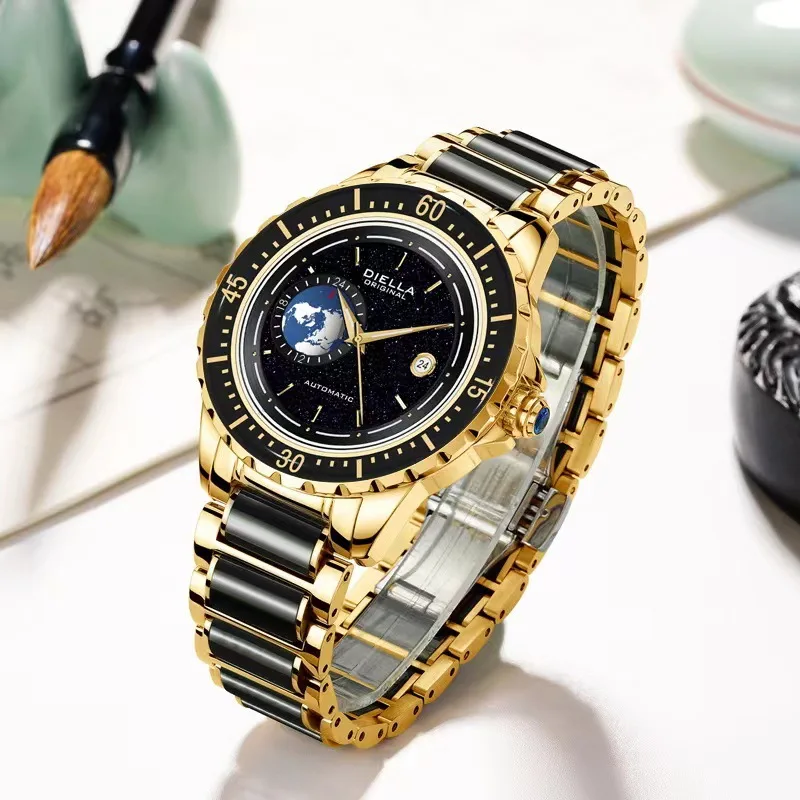
Daily Routine
- Put on watch: Normal wearing process
- Natural motion: Regular activities provide power
- Continuous operation: Maintains power throughout day
- Minimal interaction: No daily winding required
User Experience
- Convenience focus: Effortless daily operation
- Set-and-forget: Minimal maintenance attention
- Consistent accuracy: Stable power delivery
- Modern practicality: Suits busy lifestyles
Evaluating ZY Chrono’s Automatic Watch Collection
ZY Chrono’s automatic watches demonstrate the convenience and sophistication possible with self-winding mechanisms:
SEAKOSS Dual Earth Rotating Collection
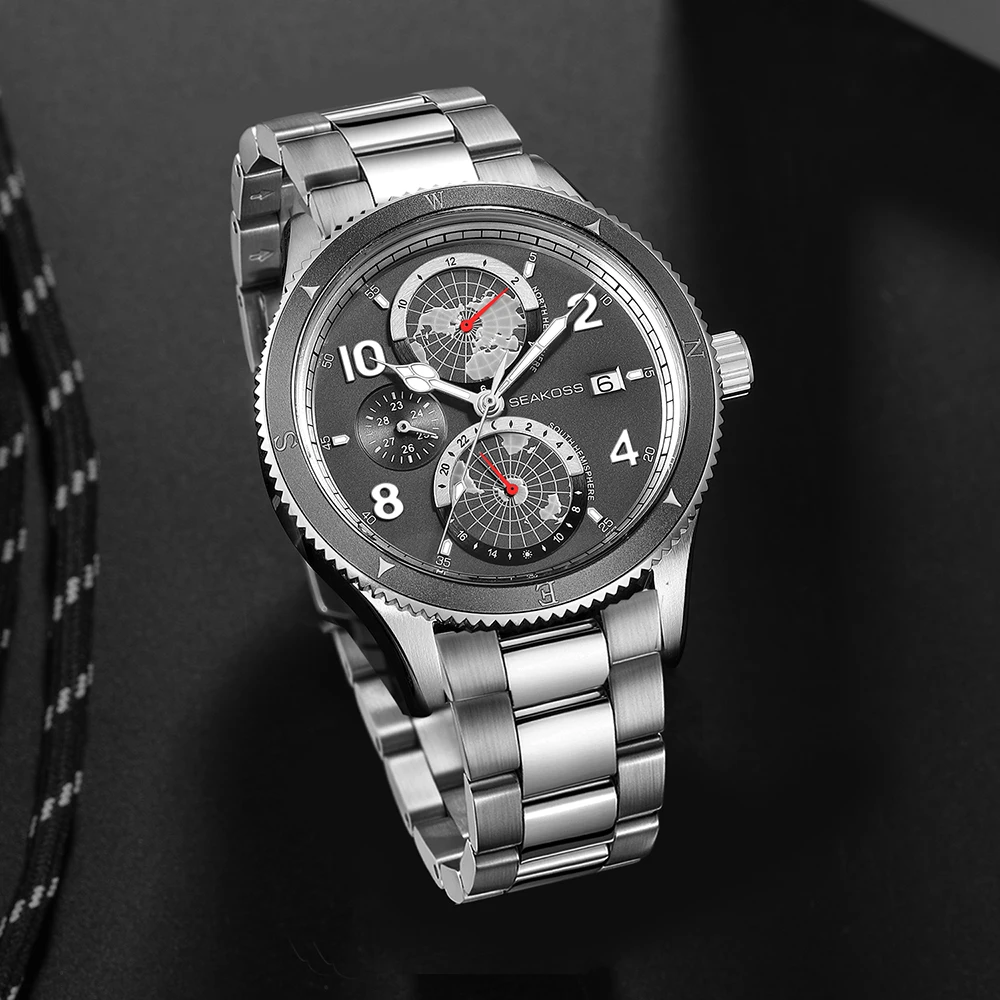
SEAKOSS 1963 Luxury Dual Earth Rotating Pilot
Key specifications:
- Movement: Automatic mechanical with dual earth complication
- Case size: 46.5mm
- Special feature: Two rotating 3D hemispheres
- Power reserve: Approximately 40+ hours
- Water resistance: 30m
- Price range: $234.71 – $244.89
Why automatic works well for this model:
- Complex complication: Dual earth mechanism benefits from consistent power
- Statement piece: Large size suggests daily wear suited to automatic convenience
- Visual appeal: Continuous earth rotation enhanced by steady power supply
- Modern innovation: Contemporary complication pairs well with automatic practicality
SEAKOSS 1963 3D Earth Rotating Men’s Automatic Pilot
Key specifications:
- Movement: Automatic with single rotating earth
- Case size: More wearable than dual earth variant
- Special feature: Single 3D globe rotation
- Customer rating: 4.5/5 from verified reviews
- Price range: $229.65 – $230.15
Gigididi Automatic Moonphase Calendar Watch 24h Seagull ST1661
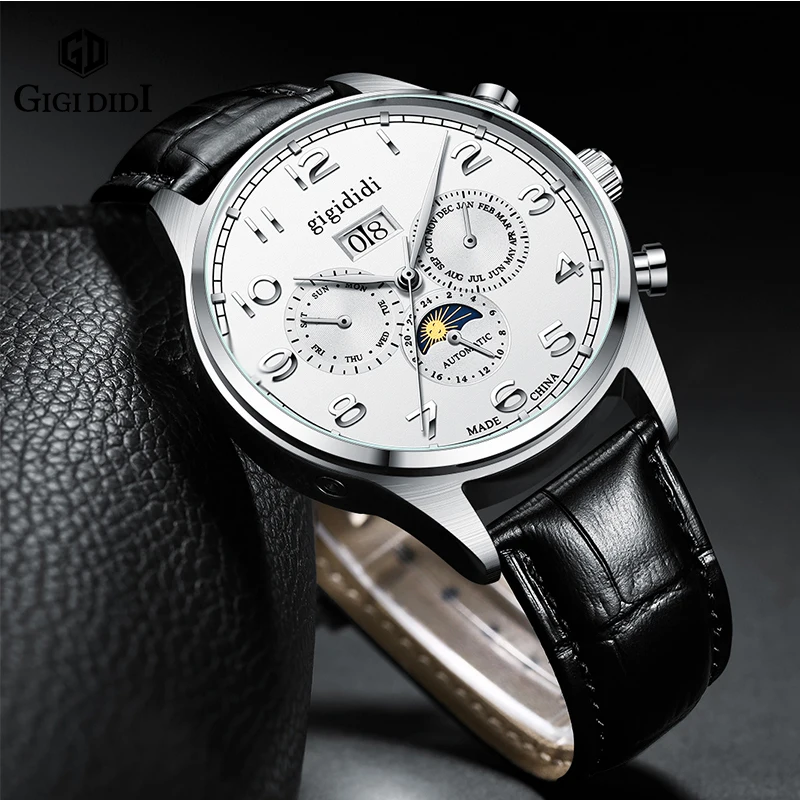
Key specifications:
- Movement: Seagull ST1661 automatic with moonphase
- Functions: Moonphase display, date, day, 24-hour indicator
- Dial variants: Black, Gold, and White options
- Customer rating: 5.00/5 from verified reviews
- Price range: $204.96 – $205.35
Automatic advantages for calendar watches:
- Continuous operation: Calendar functions remain accurate with consistent power
- Date integrity: Reduces risk of calendar mechanism problems from power interruptions
- Daily convenience: No need to reset calendar after power loss
- Practical utility: Calendar information always current for business use
Automatic Diving Watches
ZY Chrono’s automatic diving watch collection exemplifies how self-winding mechanisms enhance tool watch practicality:
Advantages for diving applications:
- Reliability: Consistent power without daily winding routine
- Water resistance: Fewer crown operations reduce seal wear
- Active lifestyle: Wrist motion during water sports maintains power
- Tool watch utility: Ready for immediate use without preparation
Examining ZY Chrono’s Manual Wind Collection
ZY Chrono’s manual wind collection centers on their ST1901-powered chronographs, showcasing the benefits of traditional hand-winding mechanisms:
Red Star 1963 Chronograph Series
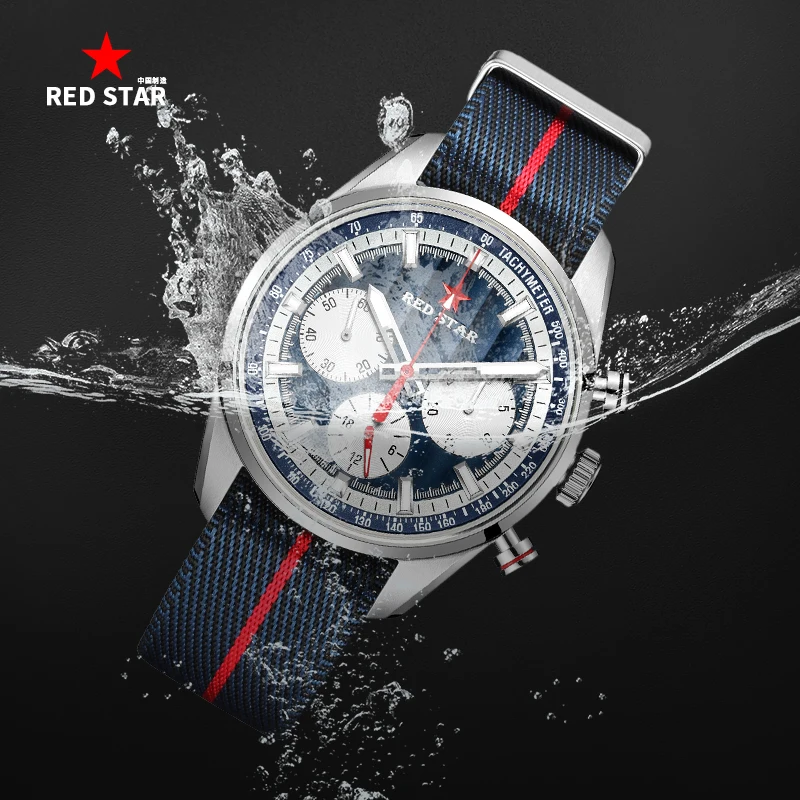
Red Star 1963 Pilot Chronograph 38mm ST1901 Sapphire
Key specifications:
- Movement: Seagull ST1901 hand-winding column-wheel chronograph
- Case sizes: 38mm and 40mm options
- Case thickness: 13.5mm (slim profile thanks to manual wind)
- Power reserve: 42 hours
- Special features: Exhibition caseback, gooseneck regulator option
- Price range: $287.04 – $290
Manual wind advantages for chronographs:
- Slimmer profile: No rotor allows thinner case construction
- Historical authenticity: Original 1963 military chronographs were manual wind
- Mechanical purity: Direct connection between user and timing mechanism
- Cost efficiency: Simpler construction enables lower pricing
- Reliability: Fewer components mean fewer potential failure points
Red Star Panda 1963 Men’s Mechanical Pilot Chronograph
Key specifications:
- Movement: ST1901 manual-wind chronograph
- Case size: 40mm
- Dial configuration: High-contrast panda layout
- Crystal: Sapphire
- Customer rating: 5.00/5 from 2 verified reviews
- Price range: $388.83 – $420.27
Red Star 1963 Bullhead Chronograph 42mm ST1901 Luminous
Key specifications:
- Movement: ST1901 manual-wind chronograph
- Case size: 42mm
- Configuration: Distinctive bullhead layout with crown at 12
- Variants: Multiple color options including black, blue, bronze
- Customer rating: 4.60/5 from 10 verified reviews
- Price range: $511.85 – $513.72
Bullhead advantages with manual wind:
- Distinctive profile: Manual wind maintains slim case despite unusual configuration
- Ergonomic operation: Crown position ideal for manual winding access
- Collector appeal: Unusual configuration enhanced by traditional manual wind
Detailed Comparison: Automatic vs Manual Wind
A comprehensive comparison reveals the strengths and limitations of each approach:
| Aspect | Automatic Watches | Manual Wind Watches |
|---|---|---|
| Daily Operation | Put on and wear normally | Wind crown 30-40 turns daily |
| Case Thickness | Thicker (rotor accommodation) | Thinner (no rotor required) |
| Power Source | Wrist motion during wear | Manual crown winding |
| Convenience | High – no daily routine | Moderate – requires daily attention |
| Mechanical Connection | Indirect through wrist motion | Direct through crown winding |
| Historical Authenticity | Modern (post-1930s) | Traditional (centuries old) |
| Complexity | Higher (additional components) | Lower (simpler mechanism) |
| Typical Price Range | $200-$250 in ZY Chrono collection | $287-$513 in ZY Chrono collection |
| Service Requirements | Every 5-7 years | Every 5-7 years |
| Power Reserve | 40-48 hours typical | 42 hours (ST1901) |
Lifestyle Considerations for Movement Type Selection
Choosing between automatic and manual wind depends largely on personal lifestyle and preferences:
Automatic Watches Are Ideal For:
Daily Wear Scenarios
- Primary timepiece: Main watch worn consistently
- Business professionals: Reliable timekeeping without routine
- Active lifestyles: Sports and movement maintain power
- Travel frequently: Consistent operation across time zones
Personality Types
- Convenience-focused: Prefer minimal maintenance
- Busy schedules: Limited time for daily routines
- Practical approach: Function over ritual
- Modern preferences: Appreciate contemporary innovation
Best ZY Chrono automatic recommendations:
- Gigididi Moonphase Calendar – Practical complications with automatic convenience
- SEAKOSS Dual Earth – Unique complication with modern practicality
Manual Wind Watches Are Ideal For:
Usage Patterns
- Rotation wear: Multiple watches in collection
- Occasional use: Special occasions or weekend wear
- Collector focus: Appreciation for mechanical complexity
- Historical interest: Connection to traditional watchmaking
Personality Types
- Ritual appreciators: Enjoy daily winding routine
- Mechanical enthusiasts: Value direct connection to movement
- Traditional preferences: Appreciate historical authenticity
- Mindful approach: Daily connection to timepiece
Best ZY Chrono manual wind recommendations:
- Red Star 1963 Standard – Historical authenticity with column-wheel chronograph
- Red Star Bullhead – Distinctive design with traditional manual wind
Balance Between Form and Function
The choice often involves balancing aesthetic and functional considerations:
Aesthetic Considerations
Case Proportions
- Manual wind advantage: Slimmer profiles create elegant proportions
- Automatic consideration: Thicker cases may appear more substantial
- Vintage recreation: Manual wind maintains historical accuracy
- Modern appeal: Automatic suits contemporary design languages
Movement Viewing
- Exhibition casebacks: Both types offer visual appeal
- Manual wind: Simpler, cleaner movement layout
- Automatic: Dynamic rotor provides motion interest
- Complication focus: Manual wind emphasizes chronograph mechanism
Functional Priorities
| Priority | Automatic Advantage | Manual Wind Advantage |
|---|---|---|
| Daily convenience | ✓ No winding routine | – Requires daily attention |
| Slim profile | – Thicker cases | ✓ Thinner construction |
| Historical accuracy | – Modern innovation | ✓ Traditional approach |
| Mechanical engagement | – Indirect interaction | ✓ Direct crown winding |
| Reliability | – More components | ✓ Simpler mechanism |
| Value pricing | ✓ Often less expensive | – Premium for complications |
Making the Right Choice for Your Needs
Several decision frameworks can help determine the optimal movement type:
Lifestyle Assessment Questions
- Wearing frequency: Will this be worn daily or occasionally?
- Morning routine: Do you prefer minimal or engaging watch interaction?
- Collection size: Is this your only watch or part of a rotation?
- Activity level: How active is your typical day?
- Travel patterns: Do you frequently change time zones?
- Aesthetic preference: Do you prefer slim or substantial case profiles?
- Historical interest: How important is traditional authenticity?
Decision Matrix
Choose Automatic if you:
- Wear one watch daily as your primary timepiece
- Prefer minimal maintenance and maximum convenience
- Lead an active lifestyle with consistent wrist motion
- Value modern practicality over traditional ritual
- Want calendar complications that stay current
Choose Manual Wind if you:
- Rotate multiple watches in your collection
- Appreciate daily mechanical interaction and ritual
- Prefer slimmer case profiles and elegant proportions
- Value historical authenticity and traditional methods
- Want direct connection to the mechanical movement
Hybrid Approach: Owning Both Types
Many enthusiasts find value in owning both automatic and manual wind watches for different purposes:
Complementary Collection Strategy
- Primary automatic: Daily wear convenience watch
- Secondary manual wind: Special occasion or weekend timepiece
- Different complications: Automatic for calendar, manual wind for chronograph
- Seasonal rotation: Automatic for busy periods, manual wind for relaxed times
ZY Chrono Pairing Suggestions
Professional + Weekend Pairing
Weekday: Gigididi Automatic Moonphase
Calendar functions and automatic convenience for business use
Weekend: Red Star 1963 Chronograph
Manual wind ritual and timing functions for leisure activities
Conservative + Statement Pairing
Everyday: Simple Automatic Pilot
Understated automatic for daily professional wear
Special occasions: Red Star Bullhead
Distinctive manual wind chronograph for memorable events
Conclusion
The choice between automatic and manual wind mechanical watches ultimately depends on personal preferences, lifestyle requirements, and the intended role of the timepiece in your collection. ZY Chrono’s diverse offerings in both categories provide excellent examples of each approach, from the convenient innovation of their SEAKOSS dual earth models to the traditional authenticity of their Red Star 1963 chronographs.
Key takeaways for movement selection:
- Automatic watches excel in daily wear convenience and practical complications
- Manual wind watches offer traditional authenticity and direct mechanical engagement
- Both types provide authentic mechanical watchmaking experiences
- Lifestyle factors often determine the optimal choice more than technical preferences
- Many enthusiasts benefit from owning both types for different purposes
Whether you choose the effortless convenience of automatic winding or the engaging ritual of manual wind operation, ZY Chrono’s collection ensures you receive exceptional mechanical watchmaking value regardless of your movement preference. The key is honest assessment of your needs, preferences, and intended usage to select the movement type that will provide maximum satisfaction over years of ownership.